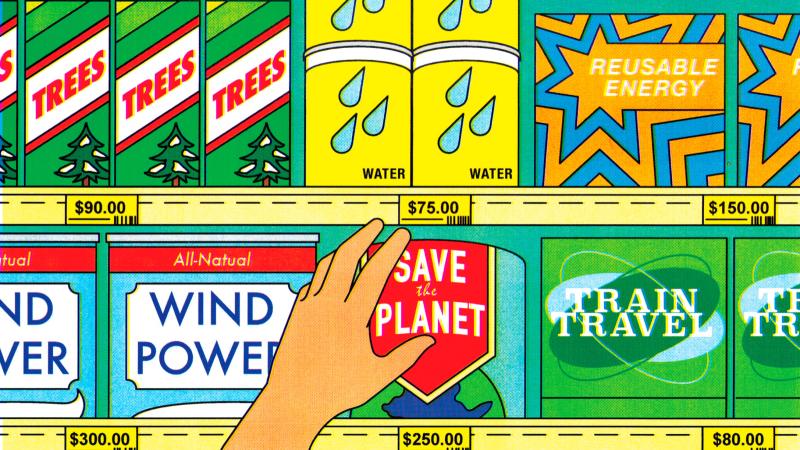Unless you walk or bike to your next vacation destination, you’ll probably have to burn some fossil fuels to get there. Blogger Kathryn Kellogg is a guru of zero-waste living. She has a few tips on how to reduce your impact on the environment when you travel, including this one that she shared with AFAR Magazine as part of their ethical travel issue:
Plant a tree when you fly (aka buy offsets)
Flying is one of the most carbon-intensive activities we participate in as travelers. “All the emissions are happening in the atmosphere, which is one reason why I try not to fly very often,” says Kellogg, who lives in the San Francisco Bay Area. But she still flies for work, for the occasional recreational travel—and to see her family, who live out of state. “I’m not saying I’m perfect by any stretch of the imagination,” she says. “But I think it’s important to be conscious, so I buy offsets.”
Offsets can sound intimidating or murky, but in essence they’re a way to compensate for the carbon emissions you create by driving or flying by investing in something that removes carbon from the atmosphere (such as planting trees, which absorb carbon as they grow) or prevents it from appearing altogether (say, investing in renewable energy). Offsets have been controversial—ideally, we’d avoid contributing carbon pollution altogether—but as the airline industry works to switch over to biofuels and other clean flights, offsets are one very small way to give back.
But instead of buying offsets through an offsite website, which she says can be problematic, Kellogg calculates her carbon footprint using a carbon footprint calculator and then pays to have trees planted through a verified service, such as the Arbor Day Foundation’s carbon credit program or the National Forest Foundation’s Carbon Capital Fund. A fully grown tree can absorb a ton of carbon and your spot on a round-trip, cross-country flight generates at least .10 tons of carbon. Because it takes 40 years for many trees to be fully grown, Kellogg plants a few extra for every flight she takes. “Typically, it only costs a dollar per tree,” she says. “For $10 you can plant 10 trees and feel a little bit better about making the trip.”
Some airlines offer carbon offset programs as well, such as United’s CarbonChoice program. Other airlines (JetBlue, Alaska)—and travel companies such as Amtrak—have partnered with Carbon Fund to offer offsetting options to travelers. To learn more about the basics of offsets, read Kellogg’s recent blog post on the topic or this 101 guide to offsets from the Points Guy.
For more tips on zero-waste travel, read the full piece in AFAR Magazine.
This piece is part of an hour-long episode of "To The Best Of Our Knowledge" on how to be an ethical traveler, produced in partnership with AFAR Magazine.

